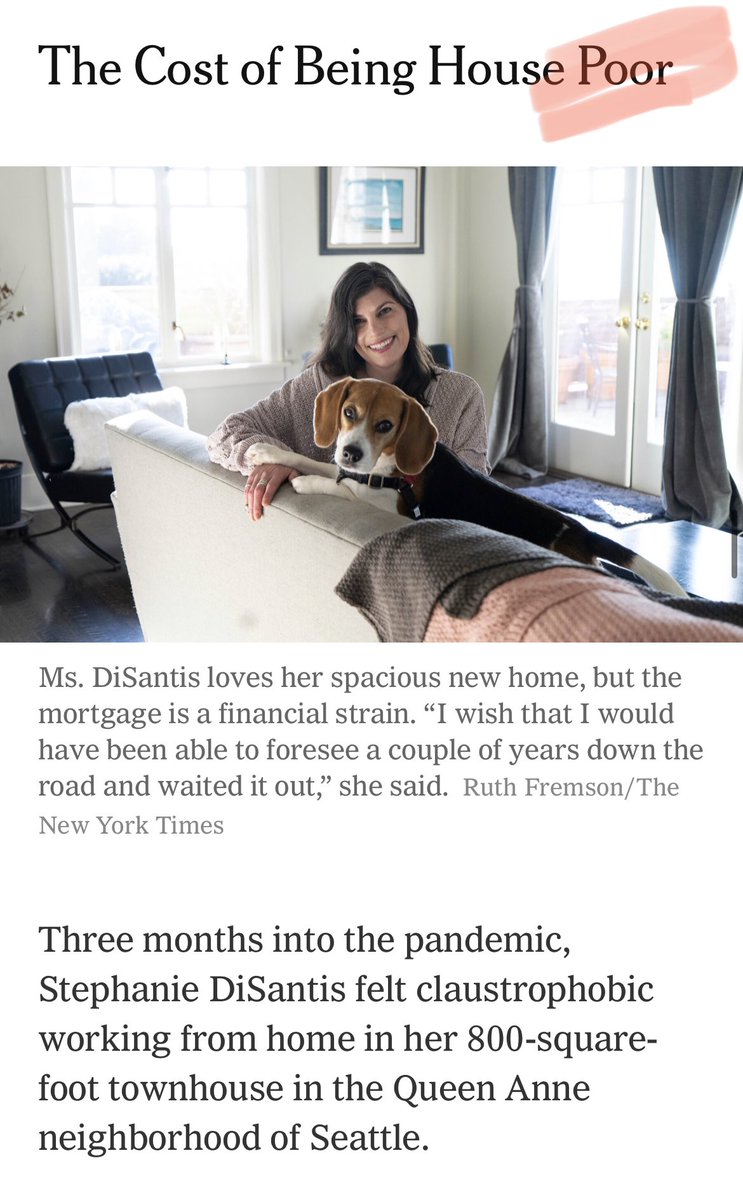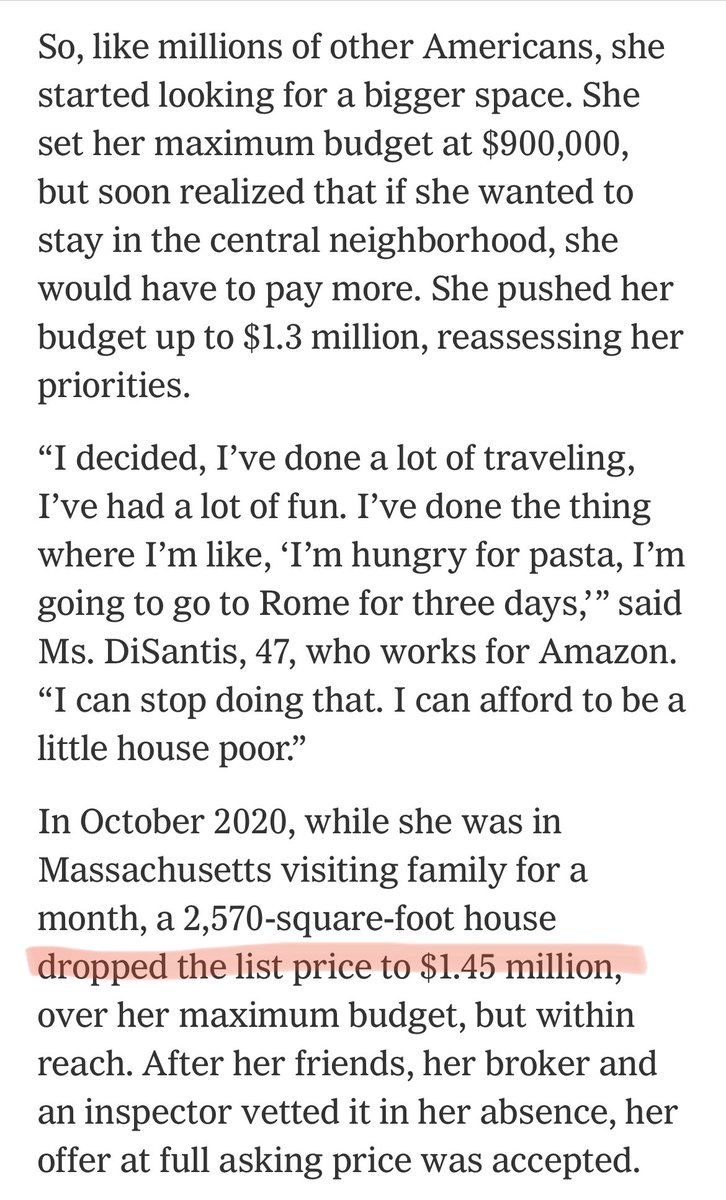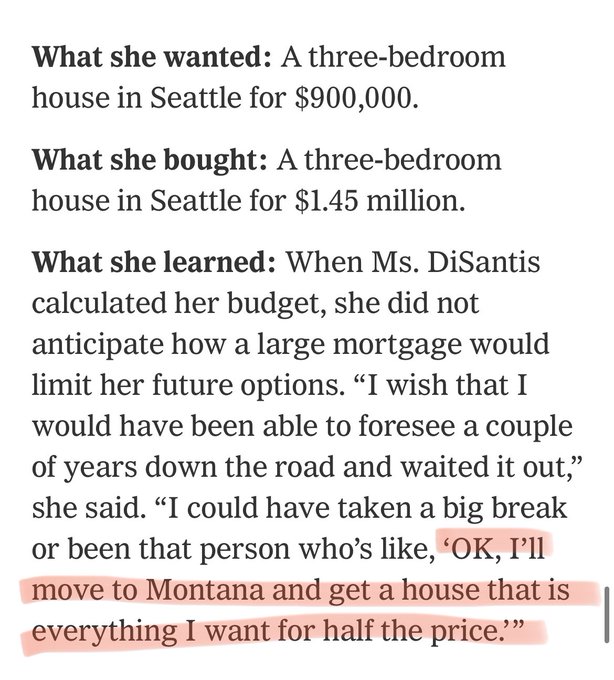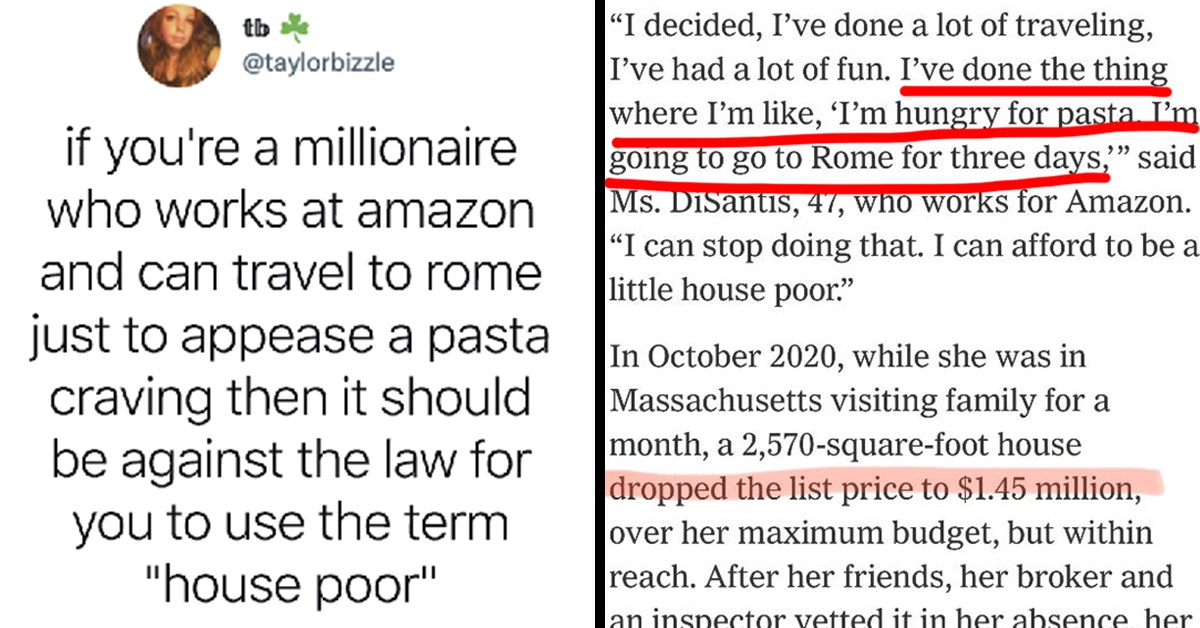A New York Times article on a number of people who regretted their decisions to purchase property and/or houses while the housing market was doing backflips over the pandemic is causing people who actually struggle with money problems widespread psychic damage. Add this to the growing collection of articles that treat rich people as average in spite of a stagnating (or decreasing when accounting for inflation) minimum wage and median household income (assuming two earners) landed at just $68,703 in 2019 in the U.S.
A viral Twitter post highlighted one story from the article in particular —that of Stephanie DiSantis, who decided to move out of her Seattle townhouse and stretched her budget to buy a $1.45 million home with a view of the Puget Sound and now calls herself “house poor.” Head of the Montana State News Bureau Holly Michels could only scream in pain.



Before moving into her 2,570-square-foot house, DiSantis felt like she could endure the struggles of being “house poor” for a while after years of having enough disposable income to fly to Rome on a whim.
“I decided, I’ve done a lot of traveling, I’ve had a lot of fun. I’ve done the thing where I’m like, ‘I’m hungry for pasta, I’m going to go to Rome for three days,'” she said. “I can stop doing that. I can afford to be a little house poor.”
This quote alone had people making jokes about Rome all over Twitter, confusing more people into discovering the article and further spreading the psychic damage caused by reading it. It wasn’t just the random vacations to Rome over food cravings, however. Part of the regret she felt for buying an expensive house also had to do with the fact that she had to work to afford it.
“I got super burned out at work,” she told the Times. “I remember thinking, ‘Man, if I was still in that townhouse, I could just quit my job for a year and be fine.’ The mortgage was so low, I could take a year off, I could relax, I could refuel and now I really can’t.”
She concluded that maybe she should have moved to Montana instead, but those who actually live there doubt she could have fit in with the millions there who are truly house poor, or poor without a house, and could never dream of taking a whole year off work just to kick back.
Articles like these often attract negative attention, particularly from younger generations who have all but given up on the dream of ever owning a home but also from anyone who’s ever known what true poverty feels like. It’s bizarre and a little bit infuriating to see just how differently the rich live from the rest of us, casually buying houses or taking trips overseas like it’s nothing while we’re going over our entire budgets in our head every time we consider ordering takeout.
Judging by the response, the widespread financial stress in this country may be reaching a boiling point.

